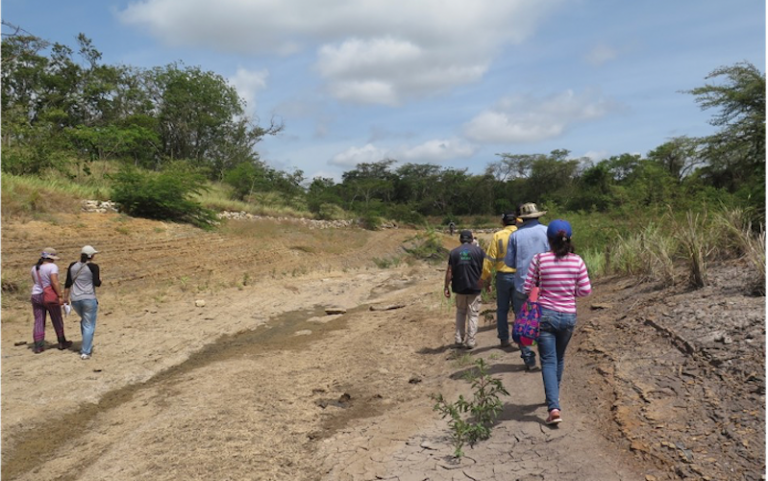
Research
Subject
Co-producing an environmental history of La Guajira: Building solidarity through decolonising narratives.
First, second and third supervisors
- Prof Jane Rendell
- Dr Liza Griffin
Professor Robert Biel
Abstract
This research aims to build an environmental history of La Guajira that connects local struggles of ethnic groups affected by coal extraction to networks of solidarity between the UK and Colombia. The research aims to co-produce an environmental history of La Guajira from the 1970s that is embedded in the history of social struggles of communities affected by coal extraction from London-based mining multinationals; and to explore the role of networks of solidarity between the UK and Colombia in disrupting the violation of human and environmental rights produced by coal extraction.
The research is framed as activist-academic, whereby my work as an academic researcher is linked to my activist practice as part of international networks of solidarity. The approach to environmental history derives from Indian and Latin American scholarship, which is embedded in the history of social struggles, linking the protection of the environment to a strategy of subsistence. The fieldwork takes place between two countries, and is integrated with annual events organised in both countries by solidarity movements – as part of an annual summer international delegation to Colombia, and an annual autumn Speakers’ Tour of mining-affected guests to London.
Biography
Diana Salazar is an ecologist from Javeriana University in Colombia and holds a MSc in Environment and Sustainable Development from DPU at UCL. She is currently a PhD candidate at the Bartlett School of Architecture and a Senior Teaching Fellow for a Landscape Architecture Seminar. Diana has several years of experience working in universities and with communities on issues around environmental justice. She has written about the political ecology of seed cultivation in Colombia and the Energy Landscape in Maputo, Mozambique. Her current research links postcolonial theory with political ecology, history, extractivism and activism. She is funded by the UBEL DTP – ESRC. Diana is a Trustee of London Mining Network.
- Website
- Publications
- Salazar, D. Castan Broto, V. Adams, K. ‘Energy Access as it Matters to People: Energy Landscapes in Maputo, Mozambique’. In Allen, A. Griffin, L. and Johnson, C. (Eds.) (2017). Environmental Justice and Urban Resilience in the Global South. London: Palgrave McMillan. http://www.palgrave.com/gb/book/9781137473530#aboutBook
- Salazar, D. Aprendiendo de la Cumbre Agraria en Colombia: El poder de la semilla native. In Diaz Cano, M. (Ed.) (2017) Leyes de Semillas: Dónde, Cómo y Por Qué?. Bogotá. Universidad Sergio Arboleda. Available online: http://repository.usergioarboleda.edu.co/handle/11232/1009
- Salazar, D. Social practices in urban agriculture in Bogota, Colombia. In Sendra, P. and Pita, MJ. (Eds.) (2017). Civic Practices. Sevilla: Lugadero. https://civicwise.org/civicpractices/
- Castan Broto, V., Stevens, L., Salazar, D., (2015). ‘Energy Access and Urban Poverty’, Rugby, UK: Practical Action Publishing, https://www.sun-connect-news.org/fileadmin/DATEIEN/Dateien/New/PPEB4.pdf
- Castán Broto, V., Salazar, D., Adams, K. (2014). ‘Communities and urban energy landscapes in Maputo, Mozambique’. People, Place and Policy. 8/3, 192-207. DOI: 10.3351/ppp.0008.0003.0005 https://extra.shu.ac.uk/ppp-online/wp-content/uploads/2014/12/communitie...
- Salazar, D. (2012) Social Organization for Urban Agriculture in Bogotá: The Struggle for Food Sovereignty in the Context of Food Crisis and Climate p. 175 – 186. Cahiers thématiques N° 11: Agriculture métropolitaine/Métropole agricole. Université Lille. https://hal.univ-grenoble-alpes.fr/hal-00975423/document
Image: Institutional and international delegation walking on the new bed of the Arroyo Bruno, diverted by Cerrejón 2019. Photo by Diana Salazar.
 Close
Close

